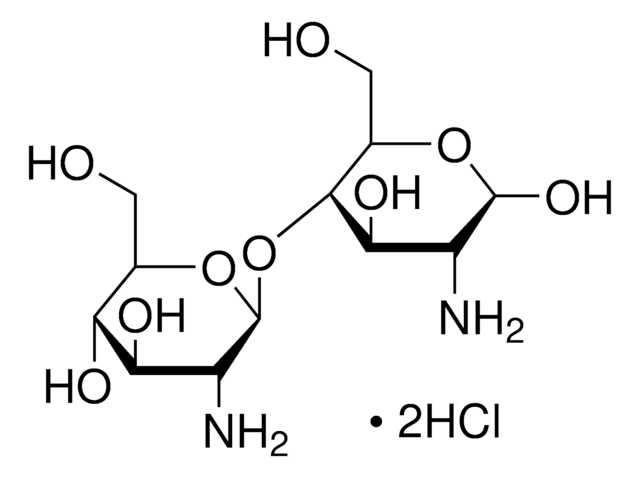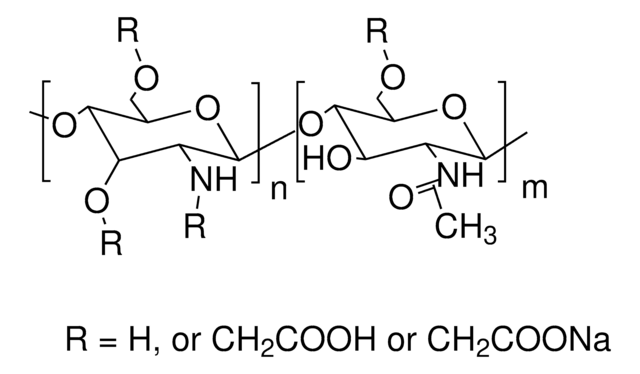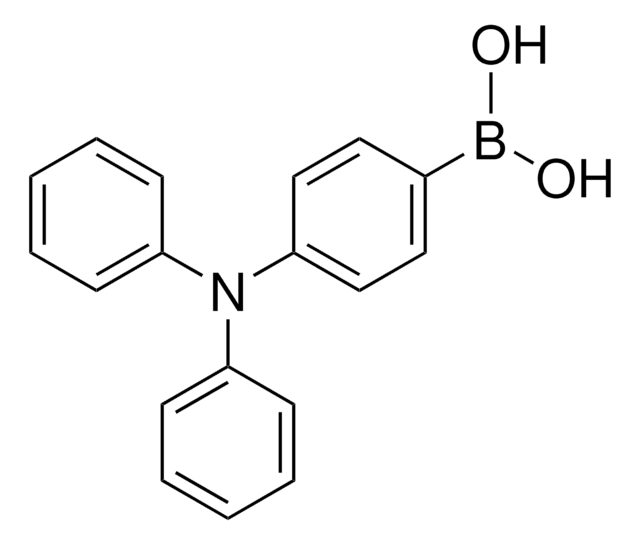912123
Trimethyl chitosan
medium molecular weight, degree of quaternization: 40- 60%
Synonym(s):
N,N,N-trimethyl chitosan, Chitosan trimethyl, Mucoadhesive polymers, TMC, TMC Chitosan
About This Item
Recommended Products
Application
The quaternization of the primary amine increases the water solubility of chitosan and keeps chitosan soluble over a wide pH range. Among all the quaternized chitosans, N, N, N-trimethyl chitosan chloride (TMC) is the most widely applied in biomedical applications.
Storage Class Code
11 - Combustible Solids
WGK
WGK 3
Flash Point(F)
Not applicable
Flash Point(C)
Not applicable
Choose from one of the most recent versions:
Certificates of Analysis (COA)
Don't see the Right Version?
If you require a particular version, you can look up a specific certificate by the Lot or Batch number.
Already Own This Product?
Find documentation for the products that you have recently purchased in the Document Library.
Articles
Professor Robert K. Prud’homme introduces flash nanoprecipitation (FNP) for nanoparticle fabrication, which is a scalable, rapid mixing process for nanoparticle formulations.
Microfluidic assembly can efficiently overcome the general disadvantages of polyamine nanoencapsulation of nucleic acids, such as a less defined morphology and composition, polydispersity, and poor reproducibility.
Our team of scientists has experience in all areas of research including Life Science, Material Science, Chemical Synthesis, Chromatography, Analytical and many others.
Contact Technical Service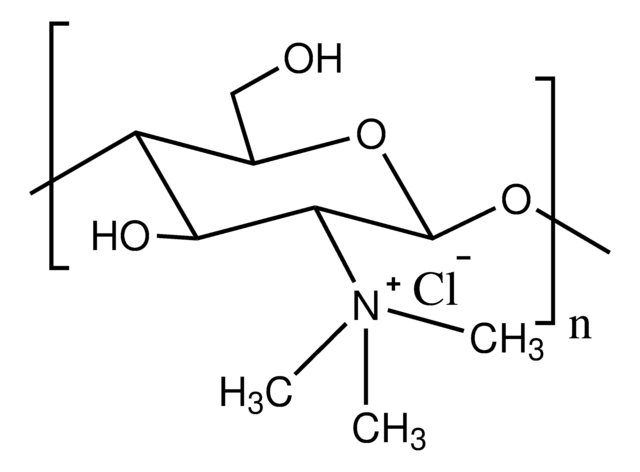
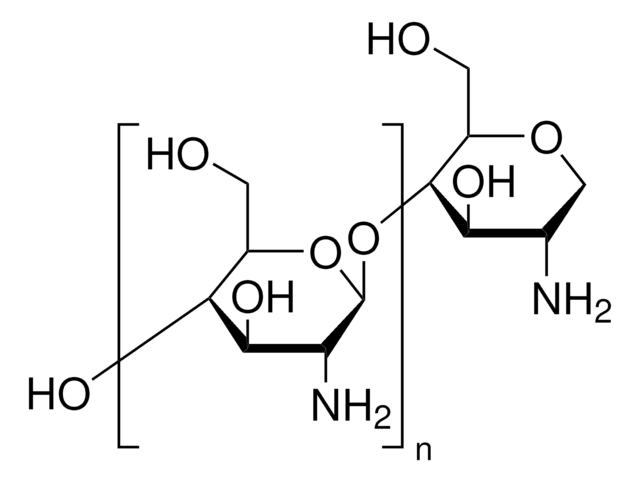
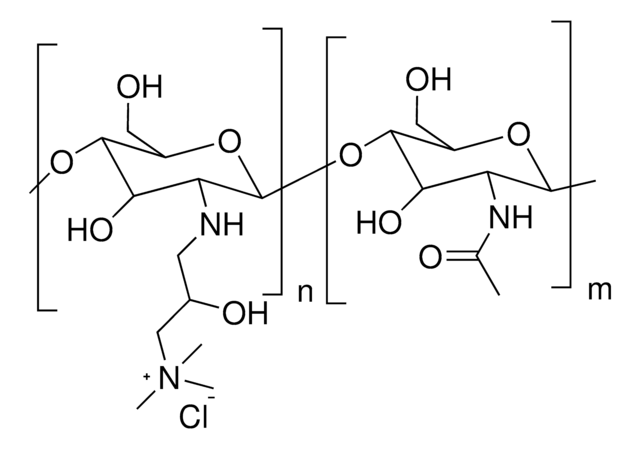
![B-[4-(1,2,2-Triphenylethenyl)phenyl]boronic acid](/deepweb/assets/sigmaaldrich/product/structures/121/044/864e0829-e1de-4170-aae4-16c2b3ce4111/640/864e0829-e1de-4170-aae4-16c2b3ce4111.png)
